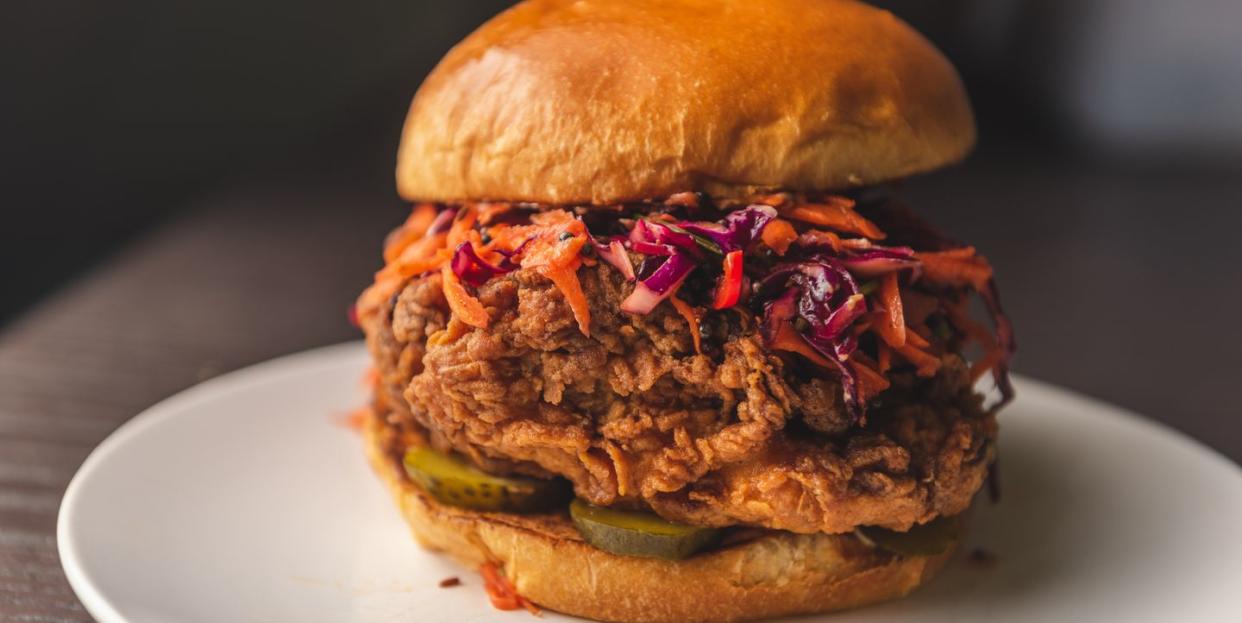High Consumption of Ultra-Processed Foods Linked to Dementia Risk, Study Says

A recent study published in the journal Neurology examined more than 72,000 people without dementia over age 55, and found a link between those who consumed higher amounts of ultra-processed foods and an increased risk for the condition.
Researchers emphasized that this is an association, not a cause and effect, so eating these foods isn’t proven to cause dementia—but it can raise risk.
While it’s difficult to define what makes a food ultra processed, researchers offer guidelines and foods to consider avoiding or limiting.
First, the good news: Consistent, cardiorespiratory exercise like cycling can help decrease dementia risk. This has been highlighted in multiple studies, including a large cohort study published in 2019 in The Lancet, which found that those with a high level of cardio fitness had a reduced risk of the condition. But there’s a catch: If you’re eating mainly ultra-processed foods, your risk may still be elevated.
In a recent study published in the journal Neurology, researchers examined more than 72,000 people without dementia over age 55 from the UK Biobank, a database containing the health info over half a million participants in the United Kingdom.
Evaluating the group after 10 years, researchers found that those who ate the most ultra-processed foods were significantly more likely to have developed dementia than those with the lowest consumption. This was true even after adjusting for other variables like age, gender, and family history of dementia.
Ultra-processed foods are those considered high in added sugar, salt, and fat, and low in protein and fiber. Simply processing a food doesn’t make it unhealthy though. For example, throwing fruit into a blender could be consider “processing,” as well as commercial canning or packaging, according to Ashley Harpst, R.D., sports dietitian and owner of Go for the Gold Nutrition.
“There are different degrees of processing, and there is no standard definition,” she told Bicycling. “Essentially, a processed food has been changed from its original form, and that may involve preservation or preparation, like cooking or baking. However, an ultra-processed food is further removed from its natural state and is made with oils, fats, sugar, or salt, and have very little intact whole foods. For example, foods made with high fructose corn syrup or soy protein isolate.”
In the study, the foods earning the designation of least healthy were options like ice cream, sausage, deep-fried chicken, highly sweetened yogurt, canned baked beans, flavored cereals, and even some condiments like ketchup and mayonnaise.
Researchers emphasized that correlation does not equal causation here, so they’re not concluding that these foods are proven to cause dementia—as in, you’re not guaranteed to develop dementia if these foods make up the bulk of your diet. But the researchers do assert there’s a strong association, which means it can raise your risk.
The mechanism is mostly likely the way that foods like these raise inflammation throughout the body, including the brain. Sugar, in particular, has been shown in previous studies to lead to excess glucose in the brain, which may cause memory impairments and less plasticity in the hippocampus—the part of the brain involved in recall, learning, and emotion.
An editorial accompanying the study pinpointed some of the challenges around eliminating ultra-processed foods, noting that categorization can be tricky. For example, soup would be classified and minimally processed if it’s homemade, but ultra-processed if it’s lacking in fiber and loaded with salt, fat, and sugar. Even some processed items that seem healthy, such as plant-based burgers, could fall into the ultra-processed realm depending on their ingredients.
Your best bet for keeping dementia risk low and maintaining the benefits that exercise affords? Aim limit processing as best you can and load up on whole foods instead, suggested Harpst.
You Might Also Like

